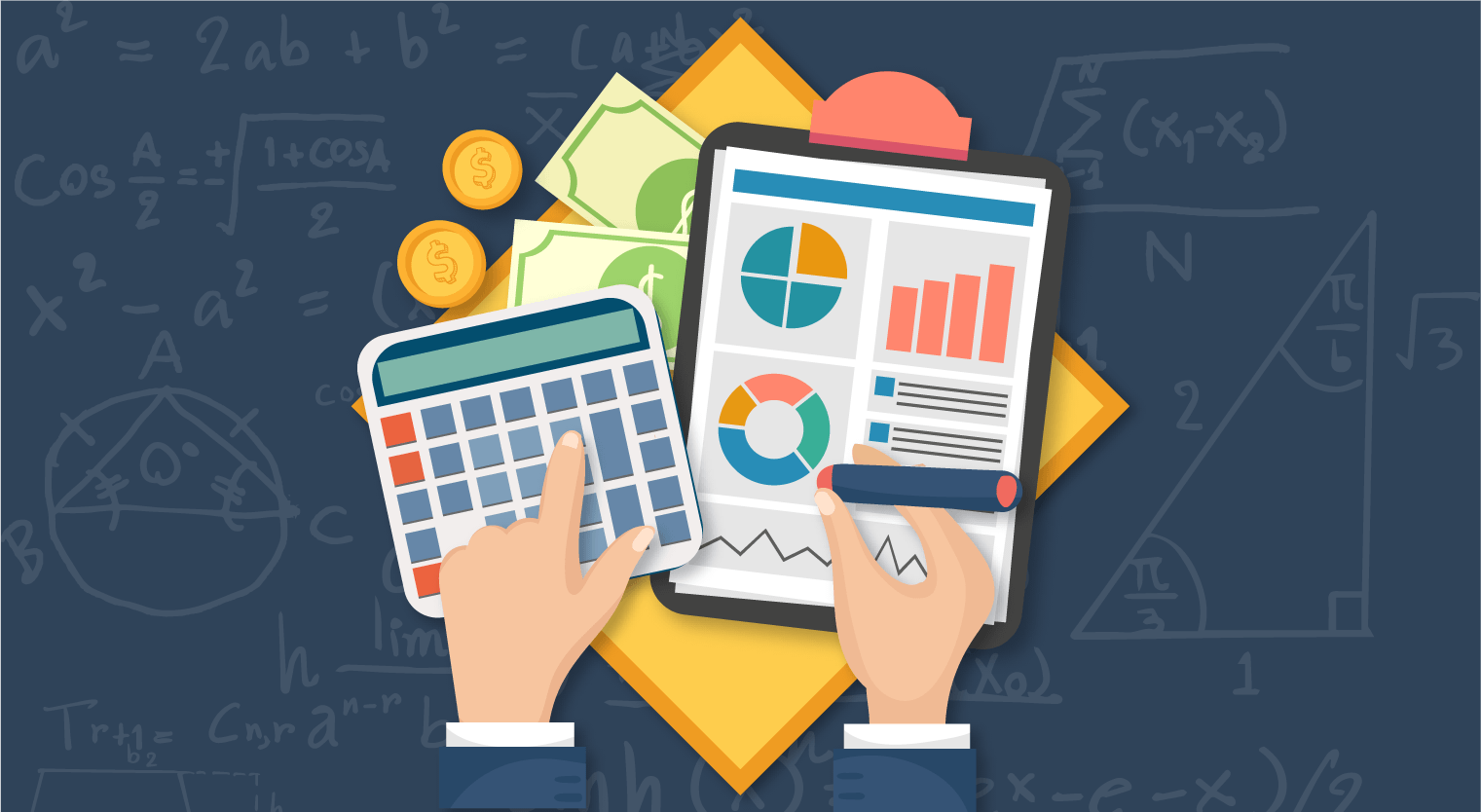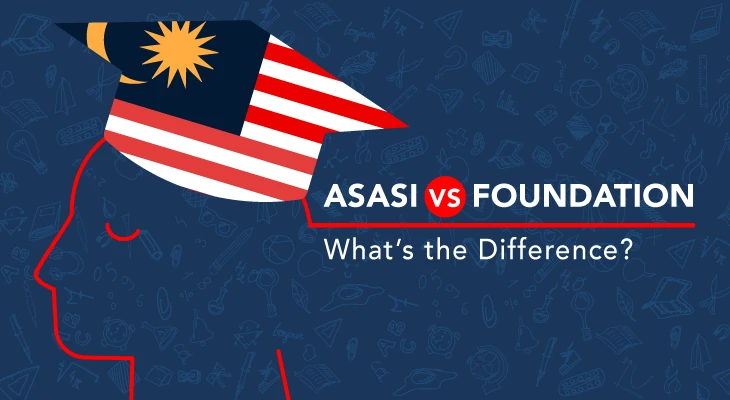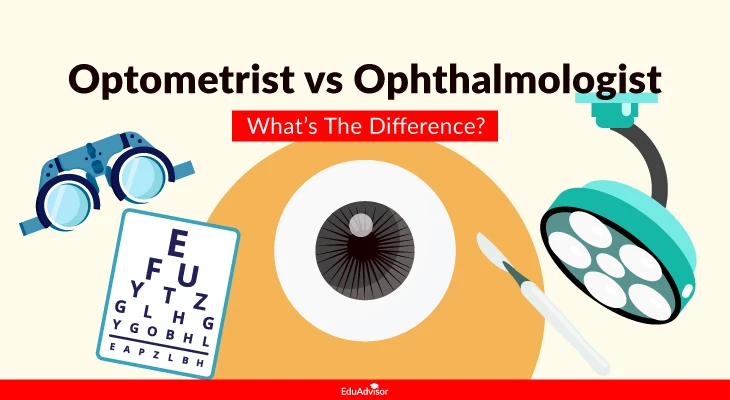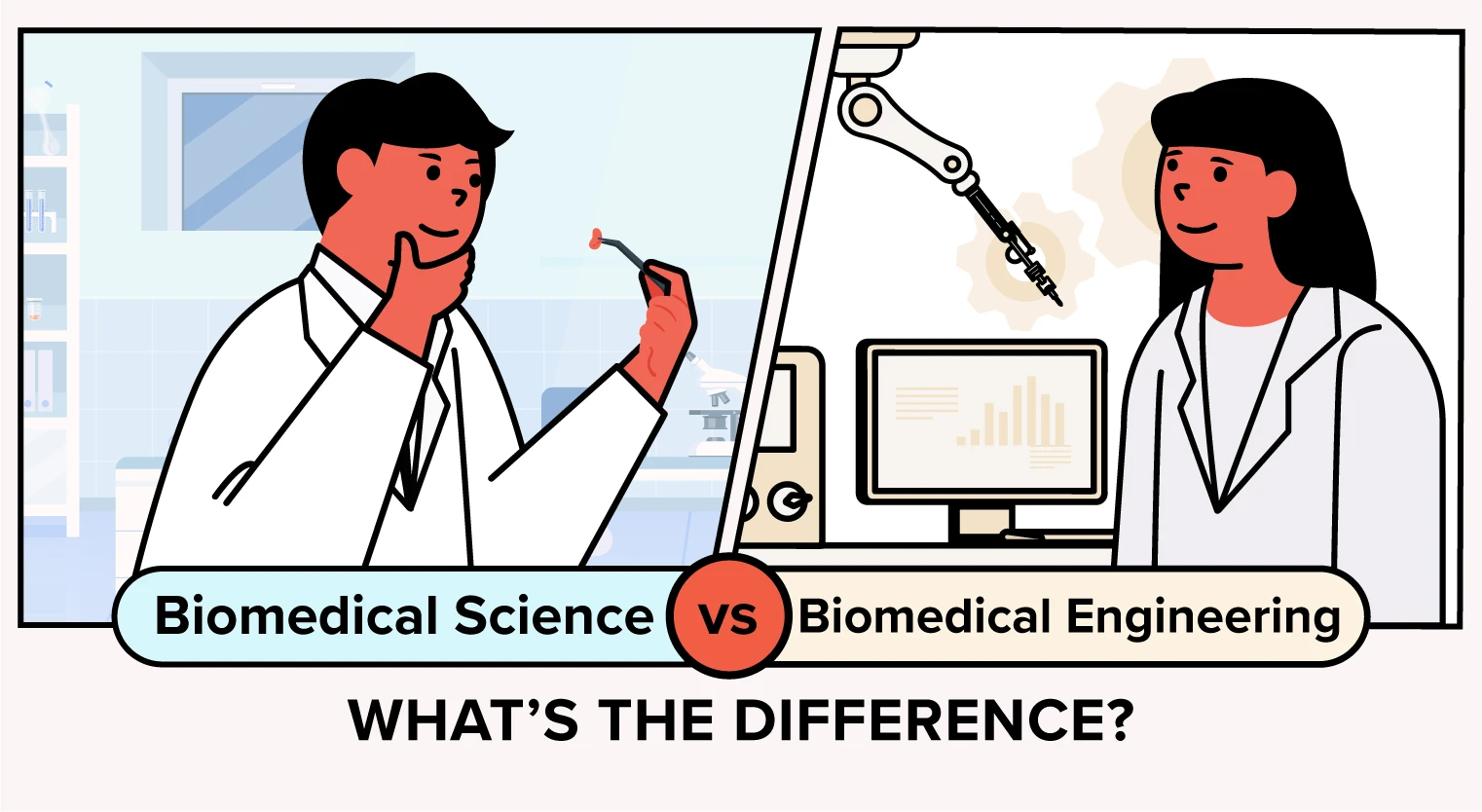Accounting vs Economics: What’s the Difference?
Think you know the difference between accounting and economics? Here’s how the two fields compare.
Updated 17 May 2022
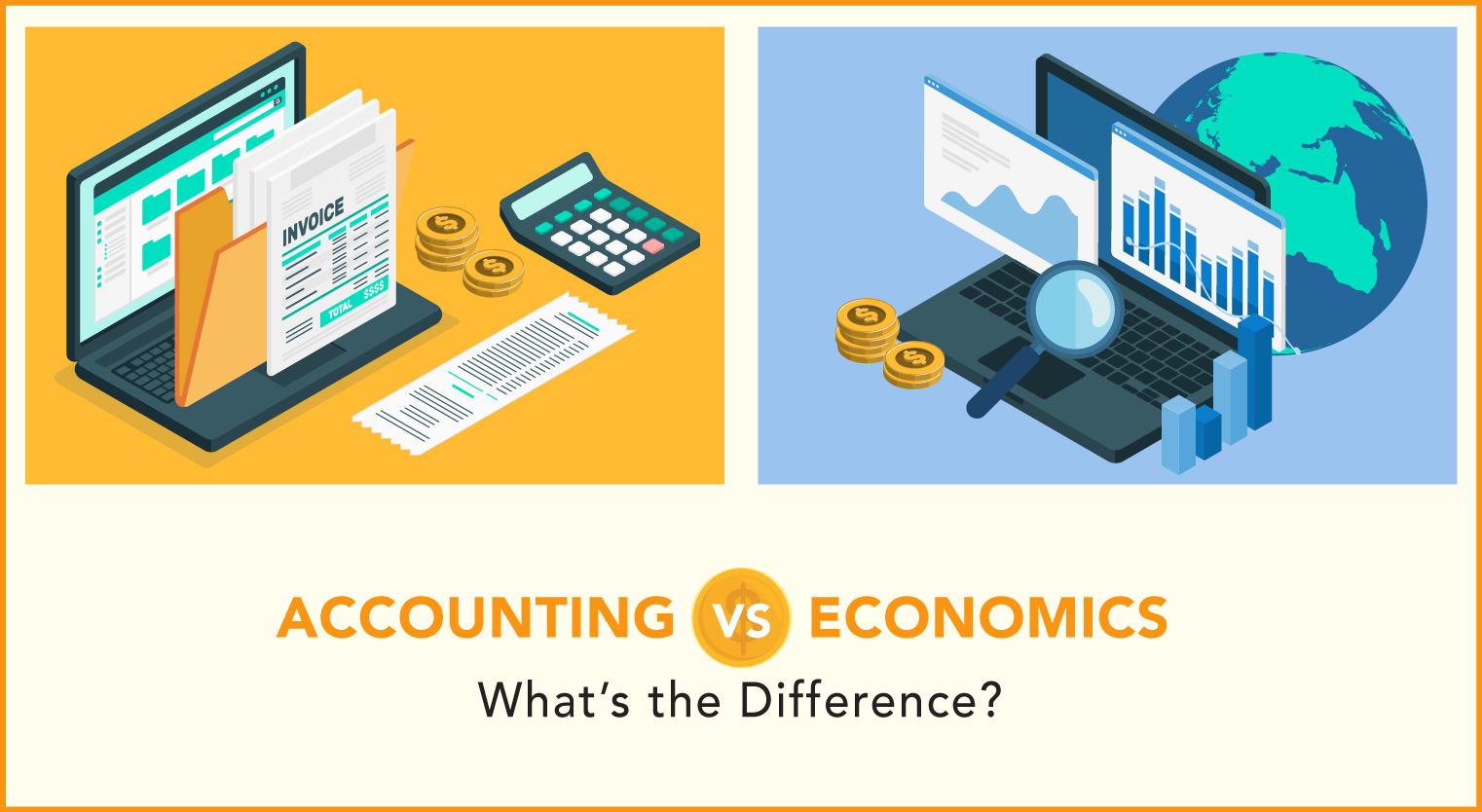
Accounting or economics — it’s easy to think that these two business fields are interchangeable and that they mean nearly the same thing. But that’s not entirely right.
Here are some key differences between accounting and economics.
#1. They focus on different parts of the business field
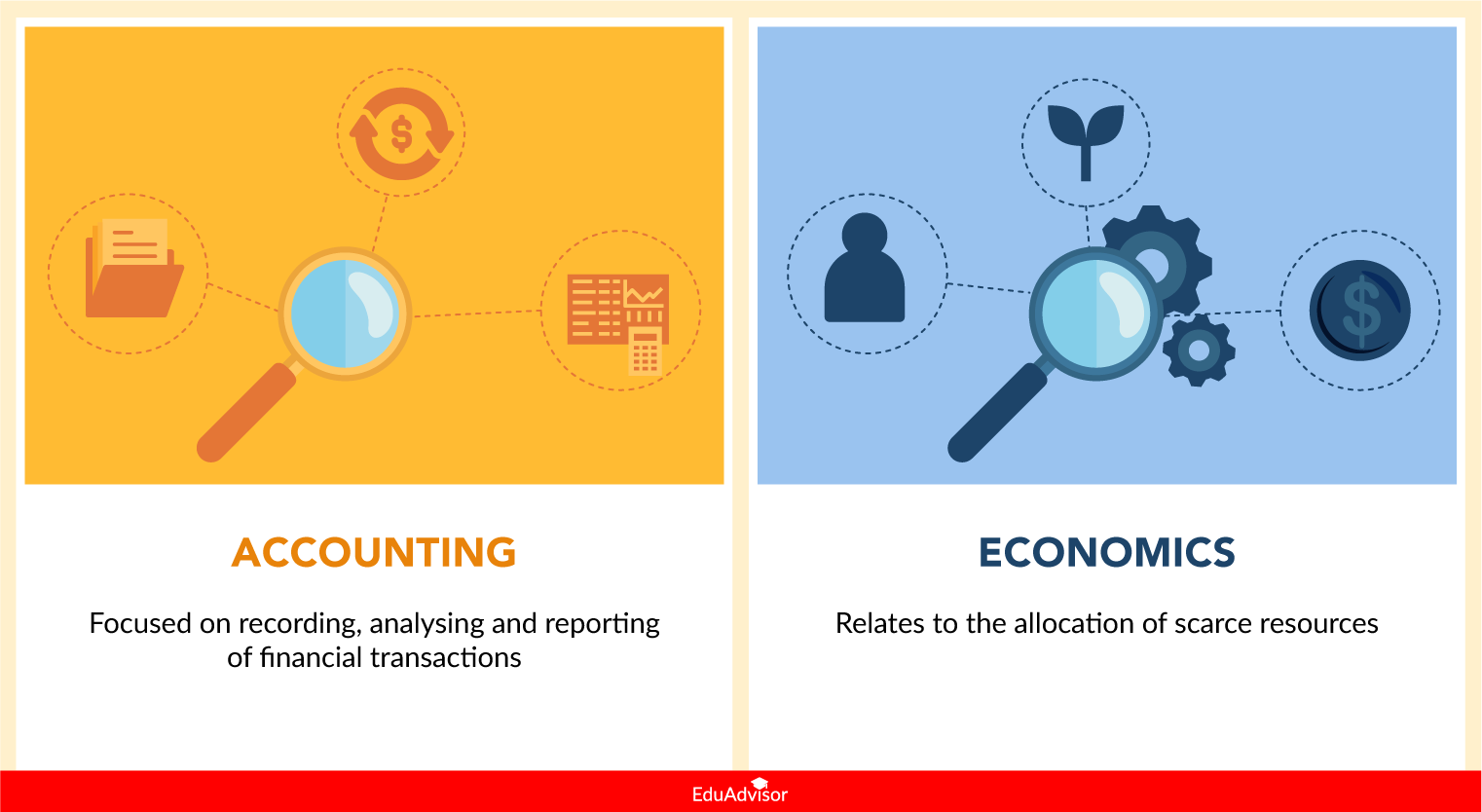
In a way, they do share some similarities. After all, both are major specialisations in the business field of study. However, at its core, both are about different things.
Accounting is focused on the recording, analysing and reporting of financial transactions. Accountants help companies and individuals keep track of their financial history and understand their financial health. Through accounting, businesses are able to make better strategic decisions around profitability and future direction.
Economics, on the other hand, is about the allocation of scarce resources. It is focused on people, resources and how values are placed on goods and services. Economists help develop policies and forecast trends based on current economic patterns.

#2. Accounting has a higher entry requirement than economics
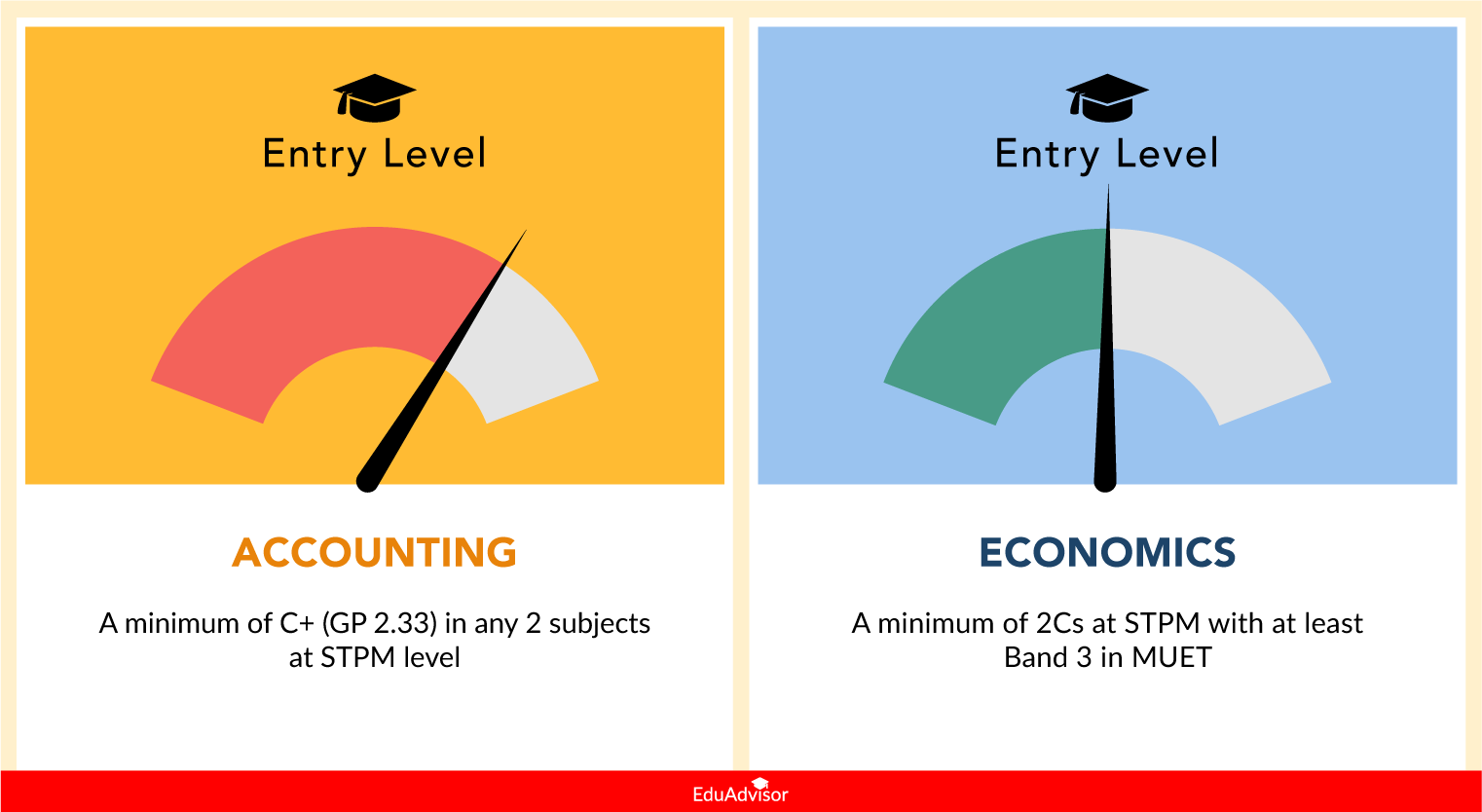
You can find both accounting and economics degrees offered in many universities in Malaysia. However, due to the different focus of each field, the entry requirement also differs.
Generally, accounting has a higher academic entry requirement where you’ll need a minimum of C+ (GP 2.33) in any 2 subjects at STPM level. In contrast, economics only requires 2Cs at STPM. Additionally, you must have at least a credit in Mathematics at SPM level to pursue a degree in accounting while economics only requires a pass.
However, economics requires better English proficiency with most universities requiring at least a Band 3 in MUET. Accounting, on the other hand, requires a Band 2 in MUET.
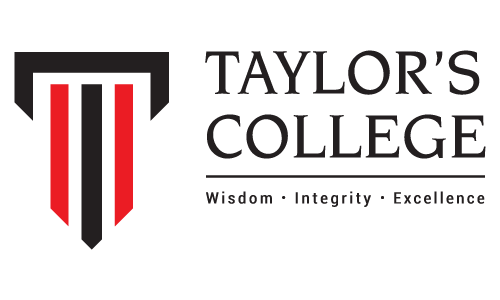
Taylor's College
ACCA Foundation in Accountancy (ACCA FIA)
✓Platinum-status Approved Learning Partner of ACCA
#3. Both fields cover different subject material
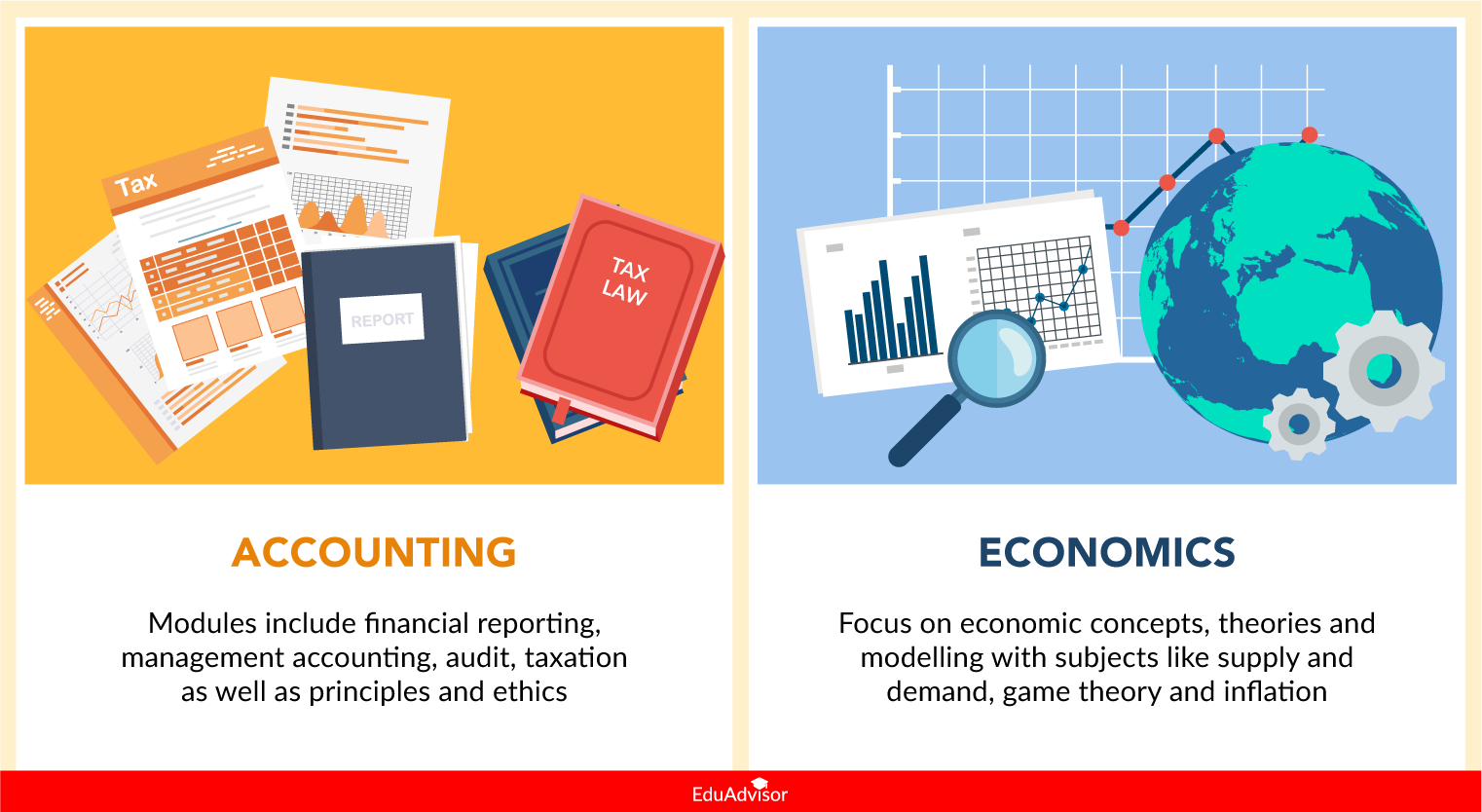
Since both fields are related, you will cover some similar foundational topics like basic math, finance principles and quantitative skills. As you progress with your degree, you will start focusing on your field of study.
Accounting students will learn the details of financial reporting, management accounting, audit, taxation as well as principles and ethics. Your study modules will focus on equipping you with the necessary knowledge to become a competent and ethical accountant.
Economics students, on the other hand, will have you focus on economic concepts, theories and modelling. You’ll delve into subjects like supply and demand, game theory, inflation, unemployment and economic policies. With this knowledge, you will be able to better understand what impacts the economy and how government policies affect businesses.
Apply for university with EduAdvisor
Secure scholarships and more when you apply to any of our 100+ partner universities.
Start now#4. You can gain professional qualifications with accounting

As an accountant, one of your primary career goals is to gain a professional accounting qualification such as ACCA, ICAEW, CPA or CIMA. Many accounting graduates pursue this part-time while working as part of their professional development. This is because these credentials are recognised globally and prove that you have sound technical knowledge in the field of accounting.
Unlike accounting, there are no professional bodies for economists. However, you can join the Malaysian Economic Association to contribute and exchange ideas on matters relating to the Malaysian economy.

#5. Both present different career opportunities
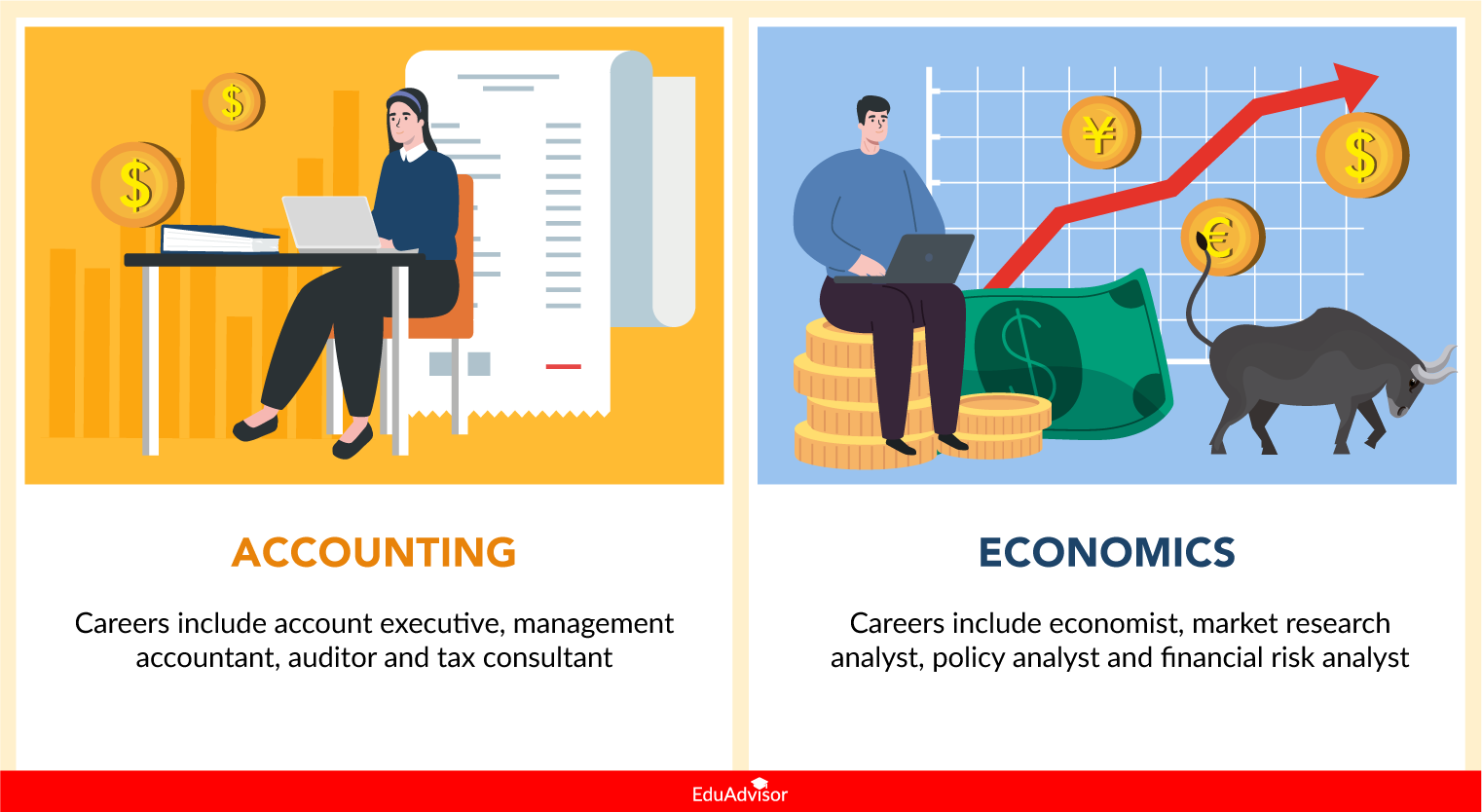
If you like to go into the practical side of things, you’re better off in accountancy. In this field, you can pursue a wide range of jobs including account executive, management accountant, auditor and tax consultant. As accounting is a core function in every business, accounting services are required at every level from government agencies and large corporations to small businesses and individuals.
Economics, on the other hand, is geared towards the predictive and theoretical side of the financial world. As an economic graduate, jobs such as economist, market research analyst, policy analyst and financial risk analyst are open to you. Typical employers include government agencies, financial institutions (e.g. banks, brokerages), research firms and think tanks.
It’s important to remember that your options are not limited by which programme you choose to study. Economics and accounting overlap each other and you can easily jump from one job to another. Picking a field helps narrow down your choices but it doesn’t cut you off from other opportunities completely.



